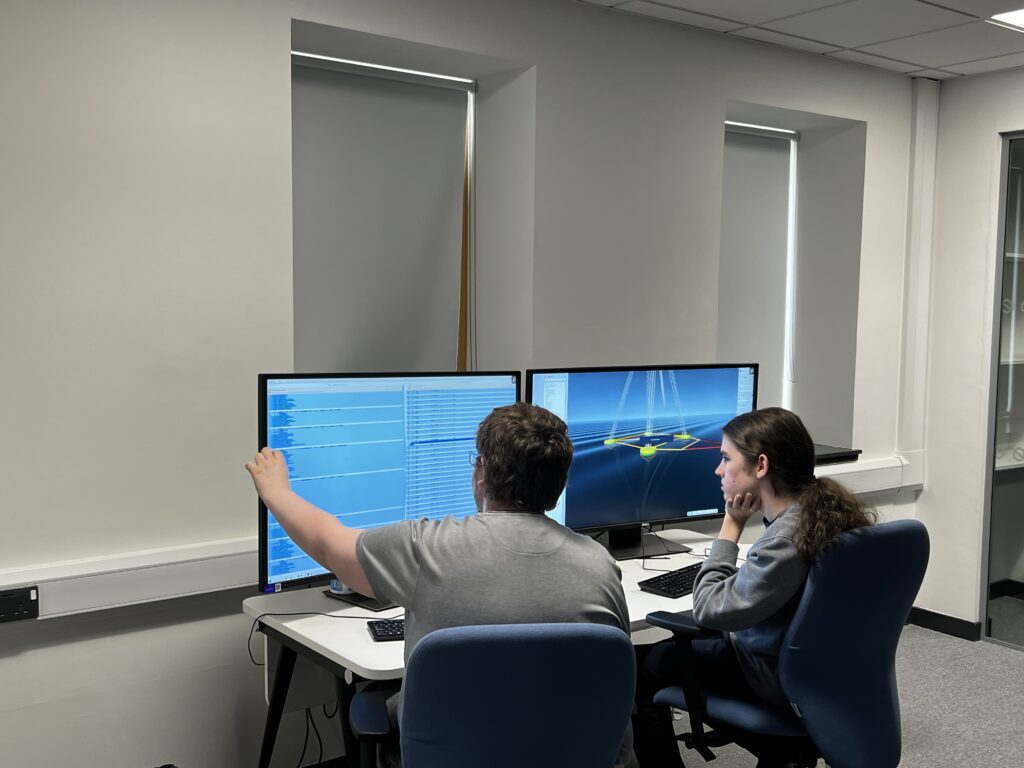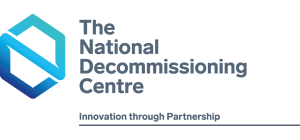
The NDC hosted senior Peterhead Academy pupil Leonard Goodlad as part of his Scientific Technologies Foundation Apprenticeship. In this blog Leonard explains what he has learned from his time here.
News
- Tell us about yourself.
My name is Leonard Goodlad, and I go to Peterhead Academy. I’ve always been interested in scientific subjects, especially computing. I took the Scientific Technologies Foundation Apprenticeship, which was how I came to do a work placement at the NDC. At home I work on computer graphics software, which is one reason I was interested in coming to the NDC, because of the simulator. I even found that the NDC were using software I had contributed code to in the past! - Explain why you wanted to do your work experience with the NDC.
I do the Scientific Technologies Foundation Apprenticeship at school. It allows you to learn how science is used in the workplace – for example, we learn about health and safety, risk assessments, and more. We then do a work placement to see how this will work in practice. I chose the NDC because the combination of the simulator and underwater laser cutting interested me. - What have you learned (or what have you been working on) so far at the NDC?
I have learned about what the NDC do in terms of developing equipment for decommissioning oil rigs. The simulator was developed so that technology can be simulated in a variety of weather conditions in order to see how it may react in real life. The laser was developed to be able to cut through the metal used to build oil rigs. I also learned that in some cases, certain underwater metal parts may need to be left in place as an ecosystem has formed around them. - What has been the best part of the work experience?
My favourite part was learning about the programmes written for the simulator by the NDC. The simulator is a complicated machine, but the people working on the simulator were able to understand it and write programmes that, for example, display heat maps in the simulator of where boats had travelled. - What have you found most useful?
I’ve always worried about entering the world of work as I had imagined there is no equivalent to teachers to ask for help, but I have learned that your colleagues will always be willing to help you if you need it. - What have you found the most challenging?
The most challenging thing was the chemistry experiment I had to do for my observation. It was difficult because I had to show a perfect representation of it for the camera, so I kept doubting myself. I managed to do it without needing to re-record though! - What has been the most beneficial from your work experience for helping you decide on your career after school?
I’ve learned that computing science, my favourite subject, can be used everywhere, not just in contexts like software development or web design. That means I’ll be able to consider a wider pool of jobs. - What was your highlight this week?
My favourite thing was when Research Fellow Dr Alicia Terrero Gonzalez showed me how to use MATLAB. It’s essentially a specialised programming language for working with n-dimension generalisations of vectors. It’s useful for working with the result data of simulations, which contain information like position, rotation, and time. You can use it to determine how certain objects react to regular waves. - What is one quote from someone you have worked alongside that you will take away from you?
Unfortunately I don’t remember the exact quote, but Research Fellow Dr Sam Cauvin said something along the lines of “everyone’s human”, meaning that people working at other companies who make mistakes are just like us; they’re human too.
Notes for Editors
| Published | Tuesday May 21st, 2024 |
